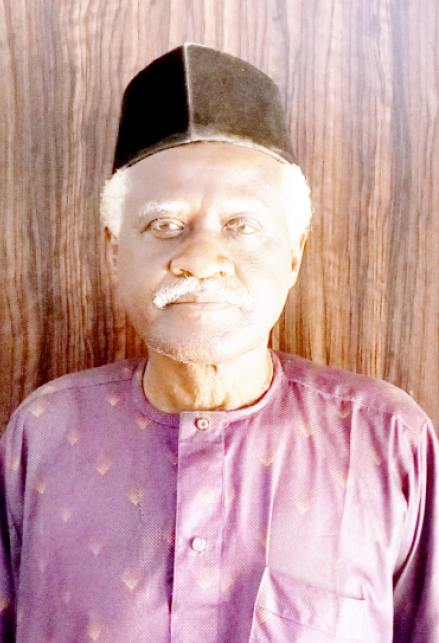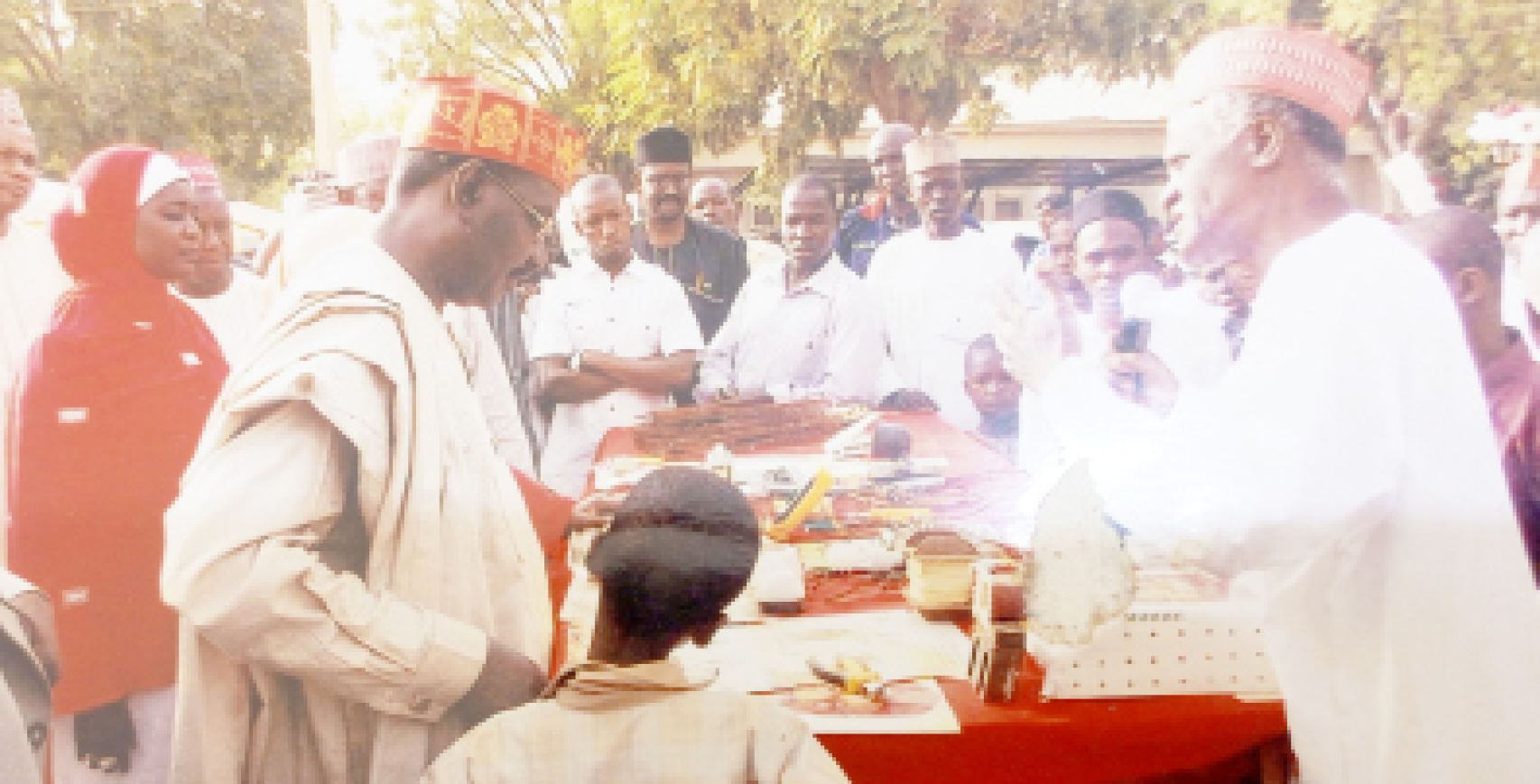At a moment when people who had put in over 30 years of service are planning to retire and rest, 73-year-old Isyaku Musa believes that though retired, he is not tired. In 2015, he fabricated a solar-powered tricycle, the first of its kind ever seen in Kano State.
Engineer Isyaku as he is fondly referred to became a symbol of inspiration to many young people and he used his fabricated tricycle to travel across states, displaying his God-given talent.
Born in 1950, Isyaku was educated at both Gidan Makama and Rimi City primary schools, he was part of the pioneer students of the then newly established Kano Educational Development Centre (KEDC) created by the Audu Bako-led administration under a crash programme to bridge the then existing gap in western educational development.
They were taught by teachers selected from England and the students were later divided into various professions; some were sent to the teaching line, technical, among other professions. Young Isyaku was employed as a storekeeper in one of the state’s secondary schools and he was later taken to the state audit department in 1975.
- Insecurity: Sanwo-Olu seeks proper documentation of immigrants
- How ‘foreign companies’ train Nigerians to become professional swindlers
He later joined a private sector company as an internal auditor and later joined a construction company where he served at managerial positions. It was under his management that the present-day Kano State House of Assembly structures, Sokoto State Polytechnic, among other structures were built.

In 1984, he travelled to England to further his education and it was while studying in England that he got into contact with what has changed his life. During his free time, he enrolled in a school where he learned how to operate and repair modern knitting machines and at that time, the technology was new to Africa. He stayed in England for five years before relocating back to Kano State.
While in Kano, he set up a knitting outfit and taught his wife who taught others. During Maryam Babangida’s Better Life for Rural Women project, he was enrolled as a trainer and he won several awards under the project. After the project, he opened a mini selling and repairing workshop for knitting machines where he had been training youths on the profession which he still operates and maintains.
Committed to self development, Isyaku ventured into importation of knitting machines from Japan and in the process, he travelled to Japan where he came into contact with solar technology and as inquisitive as he is, he enrolled to learn the processes involved, that was how his romance with solar technology began.
“After acquiring the technical skills in solar from Japan, I became a household name on solar installation in Nigeria. I started fabricating my own inverters among other solar related gadgets. I then realised that solar energy can also be applicable to other things, and that was how the idea to develop a solar powered tricycle was conceived. I displayed my fabrication at several trade fairs across the country. I met with governors, ministers and commissioners who had promised to expand my innovations but sadly none of their promises have been fulfilled,” he said.
According to him after his fabrication in 2015, he used to travel to Abuja using the tricycle to participate in science and technology exhibition every year and it was during such incidences that he was involved in an accident that damaged the tricycle. “I had an accident while coming back from one of the science and technology exhibitions held in Abuja where I represented Kano State. On my return, I wrote to the ministry informing them of the accident and they promised to handle the case. However, after waiting for months without any response, I took advantage of a science and technology programme held at the state government house to relay my request to the state governor. Unfortunately, nothing has been done till this moment,” he revealed.
He also converted his car to a solar powered car as well. Within a short period, Isyaku became the talk of the town but unfortunately, he lacks the needed support and that has been a source of worry for him. “I wanted to create a huge innovation hub that will give hundreds of our able youths the opportunity to be innovative and creative, but I cannot do that alone, I have the technical skills but lack the financial strength. I am optimistic that with assistance from either the private or the public sector, we will be able to come up with a lot of innovations that will create jobs for many people,” he said.

 Join Daily Trust WhatsApp Community For Quick Access To News and Happenings Around You.
Join Daily Trust WhatsApp Community For Quick Access To News and Happenings Around You.


